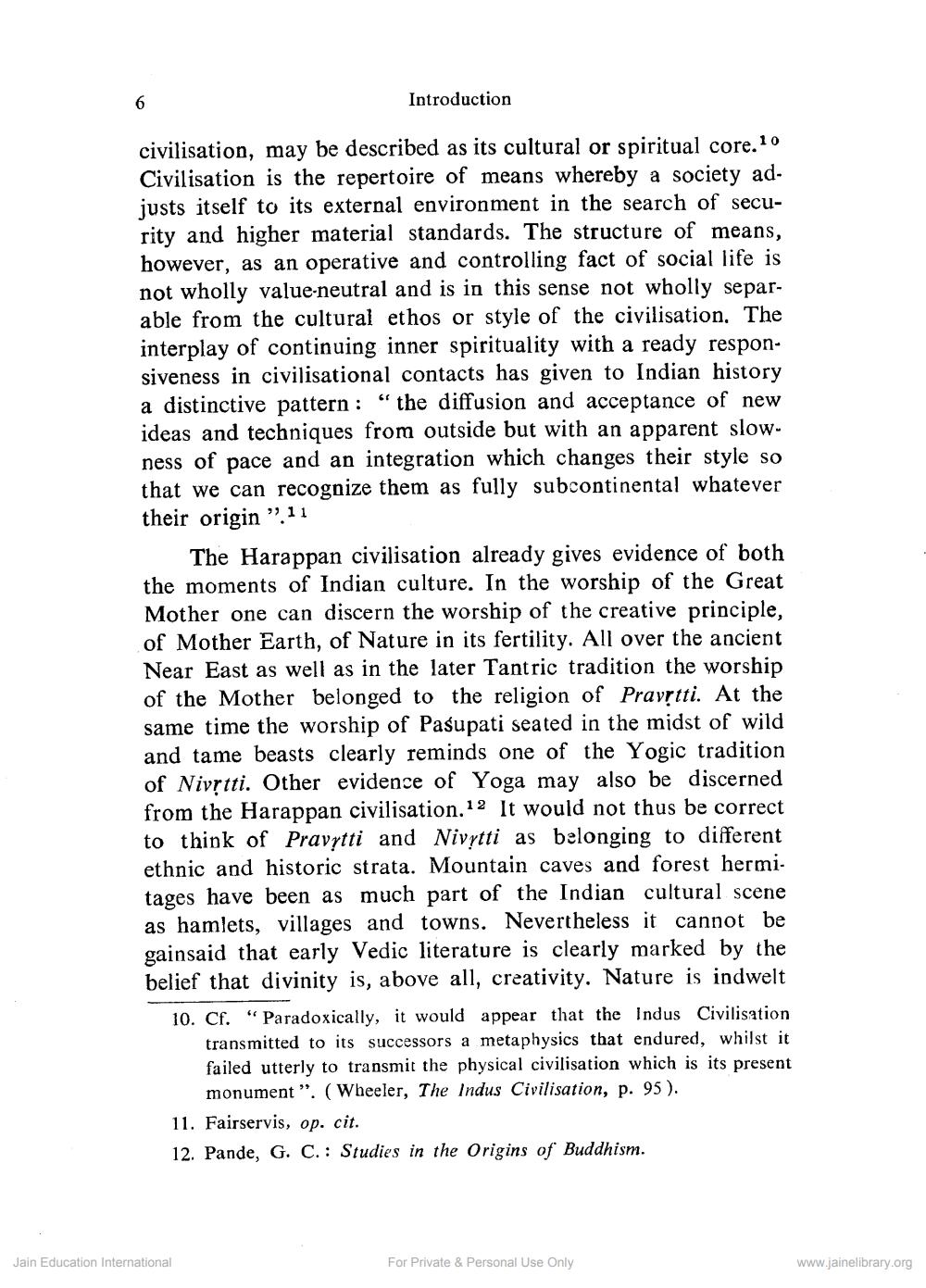________________
Introduction
civilisation, may be described as its cultural or spiritual core. 10 Civilisation is the repertoire of means whereby a society adjusts itself to its external environment in the search of security and higher material standards. The structure of means, however, as an operative and controlling fact of social life is not wholly value-neutral and is in this sense not wholly separable from the cultural ethos or style of the civilisation. The interplay of continuing inner spirituality with a ready responsiveness in civilisational contacts has given to Indian history a distinctive pattern: "the diffusion and acceptance of new ideas and techniques from outside but with an apparent slowness of pace and an integration which changes their style so that we can recognize them as fully subcontinental whatever their origin". 11
The Harappan civilisation already gives evidence of both the moments of Indian culture. In the worship of the Great Mother one can discern the worship of the creative principle, of Mother Earth, of Nature in its fertility. All over the ancient Near East as well as in the later Tantric tradition the worship of the Mother belonged to the religion of Pravrtti. At the same time the worship of Pasupati seated in the midst of wild and tame beasts clearly reminds one of the Yogic tradition of Nivrtti. Other evidence of Yoga may also be discerned from the Harappan civilisation. 12 It would not thus be correct to think of Pravýtti and Nivytti as belonging to different ethnic and historic strata. Mountain caves and forest hermitages have been as much part of the Indian cultural scene as hamlets, villages and towns. Nevertheless it cannot be gainsaid that early Vedic literature is clearly marked by the belief that divinity is, above all, creativity. Nature is indwelt
10. Cf. “Paradoxically, it would appear that the Indus Civilisation
transmitted to its successors a metaphysics that endured, whilst it failed utterly to transmit the physical civilisation which is its present
monument". (Wheeler, The Indus Civilisation, p. 95). 11. Fairservis, op. cit. 12. Pande, G. C.: Studies in the Origins of Buddhism.
Jain Education International
For Private & Personal Use Only
www.jainelibrary.org




